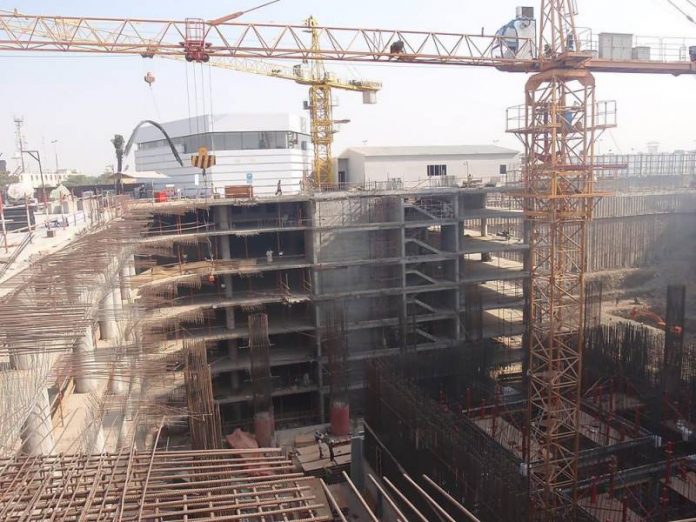The government is mulling withdrawing the special income tax regime that was allowed to builders and land developers in the previous budget after revenues from the construction sector fell to mere Rs112m as opposed to annual estimates of Rs8b.
The booming construction sector lured tax authorities into anticipating that the sector had the potential to generate up to Rs28b in income tax under the new final tax regime in the fiscal year 2016-17.
However, after the tax revenues fell short of targets drastically, hence the authorities are forced to withdraw the special tax regime for the fiscal year 2017-18, sources in the Federal Board of Revenue (FBR) are reported to have said. If the proposal is given a go ahead, the sector would be charged under the old regime, they added.
Under the old tax regime, the construction sector had paid Rs2.6b during the fiscal year 2015-16.
After talks with the Association of Builders and Developers of Pakistan (ABAD), the FBR had introduced the special regime under which a fixed tax on the basis of the unit area was to be charged. The FBR had introduced section 7C in the Income Tax Ordinance 2001 to give effect to the special rate for builders and 7D for land developers.
According to the FBR data, the total income tax collection from the developers and builders from the sale of new residential, commercial buildings and plots clocked in at only Rs112m from July through April, according to FBR data.
During the first ten months, the builders paid Rs74m in income tax on new schemes while land developers’ contributed Rs38 m in taxes.
The FBR’s estimates of revenue collection were Rs8b through the implementation of the new tax regime while Karachi-based ABAD had claimed that it would pay Rs28b in income tax under the new regime during the fiscal year 2016-17.The contributions, however, fell even below the level of Rs2.6b that had been collected in the previous FY 2015-16.
Under the new scheme, the average rate of tax on builders of all categories comes to just Rs33 per sq foot. At this average rate, the ABAD had claimed that the builders would pay Rs14b in revenue in FY 2016-17 and the developers were expected to pay another Rs14b.
Historically, tax contributions from builders and land developers have not matched their investments and profit accruing from the construction sector.
The FBR was of the view that the construction sector had shown consistent boom despite wide-scale terrorism and economic downturns. Under the new regime, the FBR was supposed to recover taxes through the representatives of the association.
At the time of approval of a development plan, a builder, owner or a land developer had to apply to the chief commissioner of Inland Revenue for payment of tax in a prescribed application that described the details of the project, tax liability and schedule of instalments.
Before approval of the project, 5pc of the tax liability had to be paid upfront and the remaining 95pc had to be paid in four instalments spanning over the project life.
In the case of default on payments of instalments, the FBR had special powers to recover the money by withdrawing it from the bank accounts.




